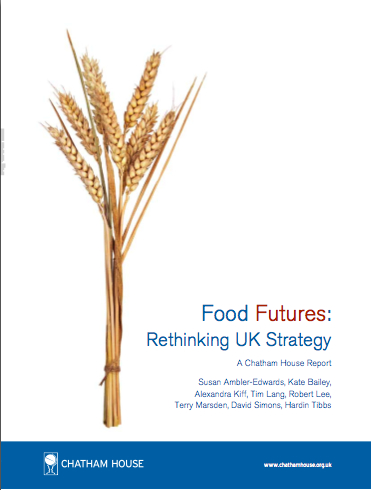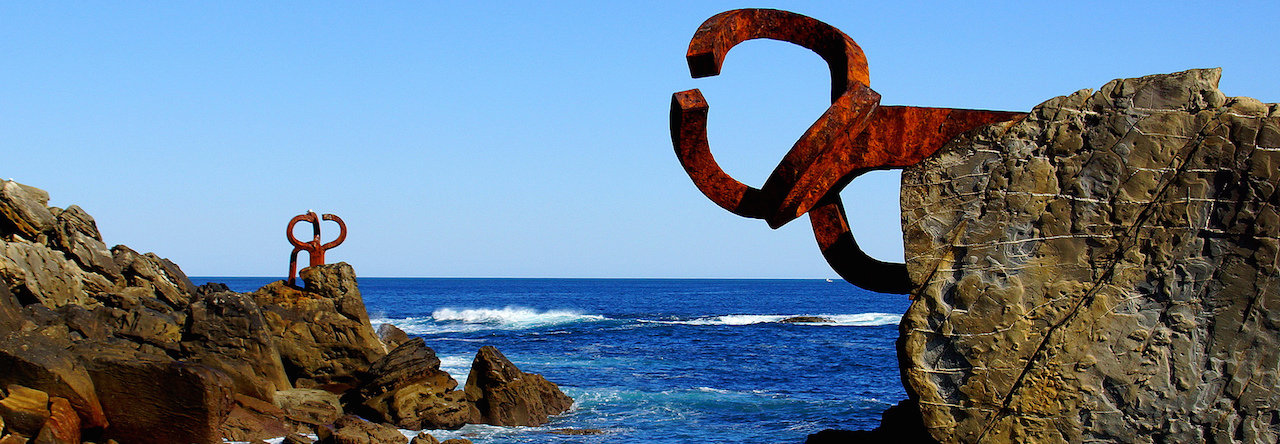One of the most ugly faces of the economic crisis is unemployment. There are countries in the South of Europe where the unemployment rate is around the 25 %. In the last four years we have broken the raising line we followed from the nineties. In fact, many of the objectives of the Lisbon Agenda on this matter have failed.
Etiqueta: EU
 In the fat Developed countries we did not use to care about food. In general terms, we are having more food sources than we need and we only have to examine statistics on obesity to confirm food was not a matter of serious concern for rich nations. Countrymen have been receiving lots of subsidies, we have been dominating the process of liberalisation of commerce to favour our economies and in the middle of happy times, food was in a secondary position in the public policy agenda. Like other aspects, crisis has also changed the focus on the question.
In the fat Developed countries we did not use to care about food. In general terms, we are having more food sources than we need and we only have to examine statistics on obesity to confirm food was not a matter of serious concern for rich nations. Countrymen have been receiving lots of subsidies, we have been dominating the process of liberalisation of commerce to favour our economies and in the middle of happy times, food was in a secondary position in the public policy agenda. Like other aspects, crisis has also changed the focus on the question.
The worst news is for Developing Countries which have huge problems to assure food supplies to population. We are very busy with our financial crisis and may be you have read or watched that thousands of persons are dying because they lack of the food basics. But the negative wave is also affecting to fat nations. As pointed out by a report from the Chatham House of the United Kingdom,
Over the next few decades, the global food system will come under renewed pressure from the combined effects of seven fundamental factors: population growth, the nutrition transition, energy, land, water, labour and climate change. The combined effects will create constraints on food supply and if action is not taken, there is a real potential for demand growth to outstrip increases in global food production. Effects on developing countries would be devastating. Developed countries will be affected too. Expectations of abundant and ever cheaper food could come under strain.
Authors of Food Futures, Rethinking UK Strategy argue that Developed Countries are also going to suffer from the reduction of food supplies. What does it mean? The same situation than in other essential resources, like energy. We cannot be confident of depending on the international commerce. We have to promote our own food industry in all levels and establish strong links with our providers in other nations. The way is not only a certain return to economic nationalism (there is no choice) but also to working in a more balanced commercial relations with other actors, and specially with the main producers, Developing countries.
In this environment, ‘business as usual’ models could at worst fail, and at best be poor preparation for the coming period. EU/UK food supply arrangements will be required to operate profitably around a significantly higher price norm, one that reflects the true cost of resources and incorporates wider social and ecological considerations. A system that is able to reconcile the often conflicting goals of resilience, sustainability and competitiveness and that is able to meet and manage consumer expectations will become the new imperative.
The experts already think that the EU is the best framework to operate in. But I do not know if a model based on quotas and subsidies is the best way to increase the quality and competiveness of the food industry in the continent.
Every country is very busy triying to cope with its economic and financial difficulties. For this reason, there are issues that have lost their prominent position in the political agenda. It seems to be the case of the European Union project, which is living in a nightmare from the last three years, when some countries rejected the Constitution.
 But despite big problems, before the crisis everybody agreed that the EU was an outstanding model of economic development and transnational cooperation. In fact, with the exception except those countries that wanted to live isolated, the waiting list to become a member of the Big Europe was very long. Even we can remember the discussions over the integration of Turkey. What happened? That Europe only exists for the Eurocrats. The European project is not leading any great economic transformation and does not play any role as a superpower. And in the middle of the crisis, several countries think seriously on the utility of being a member of the EU.
But despite big problems, before the crisis everybody agreed that the EU was an outstanding model of economic development and transnational cooperation. In fact, with the exception except those countries that wanted to live isolated, the waiting list to become a member of the Big Europe was very long. Even we can remember the discussions over the integration of Turkey. What happened? That Europe only exists for the Eurocrats. The European project is not leading any great economic transformation and does not play any role as a superpower. And in the middle of the crisis, several countries think seriously on the utility of being a member of the EU.
This happens to a majority of the new members of the European countries, the Central and East nations which have been integrated recently. A brief from the Centre for European Reform has analysed the question and offers worrying conclusions. “The EU’s new member-states have been hit hard by the credit crunch and collapsing export markets. The Central and East Europeans sense that their post-Cold War growth model – consisting of liberalisation and EU integration – is broken”.
In New Europe and the Economic crisis this think tank considers that the integration has left those countries in a poor situation and that the EU authorities do not have credibility to helping in the recovery. The revival of the State economy is contrary to the principles proposed by the Lisbon Agenda. This strategy is oriented to “liberalise and modernize economies”, but now governments are struggling to maintain their statu quo. “The legal framework for the single market is under threat of being weakened”. According to the report, Eastern countries need more support from the big Western European nations and feel “they do not pay sufficient attention to their concerns, for example about Russian bullying of neighbouring states or the costs of meeting EU climate change targets in poorer countries”.
What does it mean? Disenchantment on the European dream is extending. Several political leaders in East and Central Europe are returning to isolation and reject the growth model they have followed sin the 1990’s. This situation adds more argument to euroskeptics who defend that the EU is only an artificial entity created by enlightened politicians who were afraid of a third World War. As political stability is grounding in the old continent, may be we will not need the EU anymore.
